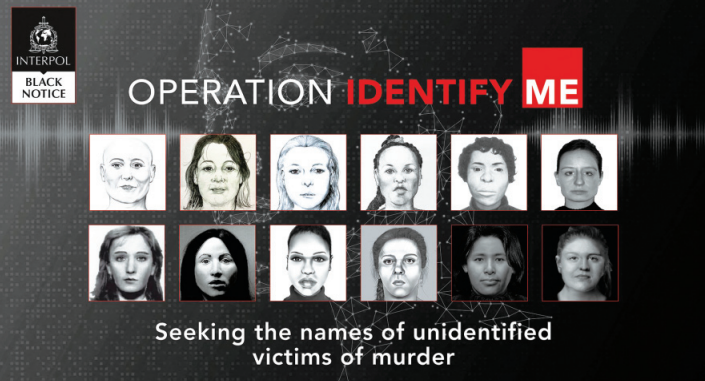Police go public to identify bodies
By JULIAN SHEA in London | China Daily Global | Updated: 2023-05-11 09:30

Police forces in the Netherlands, Belgium, and Germany have launched a public appeal to help identify 22 women who were murdered between 1976 and 2019, but whose names remain a mystery, despite years of police work.
International police organization Interpol often facilitates cooperation between countries but this is the first time such a project has been extended to the public, as part of a program known as Operation Identify Me.
The decision was sparked by the discovery of a body of a woman in a wheelie bin in Amsterdam in 1999. She had been shot in the head and chest and new digital technology has been used to compile a far more accurate picture of her face than was possible 24 years ago, but police are still no closer to identifying her.
Police in the Netherlands say that unidentified men die in a variety of circumstances, but in the case of the bodies of unidentified women, it is likely they were murdered, hence the focus of the initiative.
"If you don't have a name, you don't have a story. You're just a number. And nobody's a number," forensic detective Carina Van Leeuwen told the BBC.
The published list has seven cases from Belgium, six from Germany, and nine from the Netherlands. In most cases, the victims were aged between 15 and 30, and the list includes potentially vital clues toward identification such as tattoos and facial reconstructions.
Free movement between European countries means that the women may not be from where their bodies were found, or may not even necessarily have died there.
"Partly because the women are likely from countries other than where they were found, their identities have not yet been established," Dutch police officer Martin de Wit told the NL Times website. "It is possible that their bodies were left in our countries to impede the criminal investigation."
Women are "disproportionately affected by gender-based violence, including domestic violence, sexual assault, and trafficking", added Susan Hitchin, coordinator of Interpol's DNA unit. "This operation aims to give back to these women their names."
Not only does the initiative hope to discover their names, but it also aims to open the process of identifying who is responsible for their deaths.
"In similar investigations, establishing the victim's identity ultimately has led to the arrest of a suspect," said German police officer Anja Allendorf.
Hitchin said the process was also important for family members and friends who may not know what has happened to their missing loved one, and could bring their story to a dignified close.
"It's horrendous to go all these years without having any news, not knowing what's happened," she explained. "And however dreadful it may be to get that confirmation that their loved one has died, it is part of an important process in order to grieve and to move forward."
























